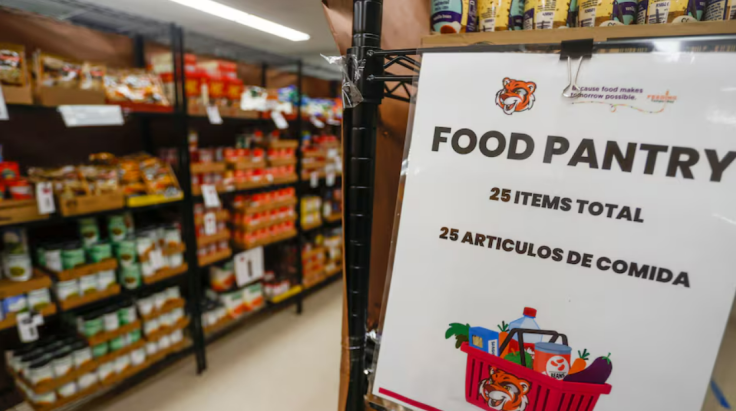
SEATTLE - Across the United States, almost nine million older adults are eligible to enroll in the Supplemental Nutrition Assistance Program (SNAP), meant for low-income families to supplement their grocery budget. But according to a report by the National Council on Aging, only 30% of eligible older adults are currently enrolled in the program.
For Supplemental Security Income assistance, more than 2.3 million older adults are eligible but not currently enrolled. In terms of Medicare Savings Programs, 5.8 million people are also eligible but not enrolled.
In the state of Florida, more than 850,000 seniors are eligible to get SNAP benefits, but the NCOA report found that only 38% of those eligible participate in the program. Despite the low number, Florida is still posting better numbers than the national average of 30%.
According to the organization, 858,158 eligible seniors in Florida are not currently enrolled in SNAP benefits. Across the state, Miami-Dade, Duval and Hillsborough counties have the highest enrollment rates. Even though 50% of eligible seniors in Miami-Dade get benefits through SNAP, 108,813 people who are eligible do not participate.
The counties with the lowest participation rates in SNAP were Collier, St. Johns and Charlotte.
Across the country and in Florida, more people participate in the Supplemental Security Income, which provides cash assistance for seniors with little to no income, and Medicare Savings Programs. Those two have enrollment rates of nearly 50% among eligible Florida seniors.
Last week, the NCOA released an interactive map that showed how many American seniors were eligible for benefits programs but not enrolled. The organization looked at programs such as SNAP, SSI and Medicare Savings Programs and found that, nationally, only 30-49% of people aged 65 or older were signed up.
"It's shocking and unacceptable to have nine million eligible older adults not enrolled in benefits that can make the difference between them affording food or health care each month," said Ramsey Alwin, NCOA President and CEO.
How to be eligible for SNAP benefits in Florida
Individuals looking for SNAP benefits must pass all eligibility rules to receive food assistance benefits. For the most part, those rules are set at the federal level although states have flexibility to tailor aspects of the program.
In the state of Florida, applicants most pass a gross income limit less than or equal to 200% of the Federal Poverty Level. Adults from ages 18 to 59 who do not have dependent children or are not pregnant may receive SNAP benefits for three months in a three-year period if they are not working or participating in a work or work training program.
Last November, the Florida Department of Children and Families, which administers the federal SNAP program on the state level, expanded its own definition to include adults up through 59 years old and increased the mandatory employment and training program (SNAP E&T) from 80 hours every month to 120.
For more information on SNAP eligibility rules in the state of Florida, click here.
© 2025 Latin Times. All rights reserved. Do not reproduce without permission.






